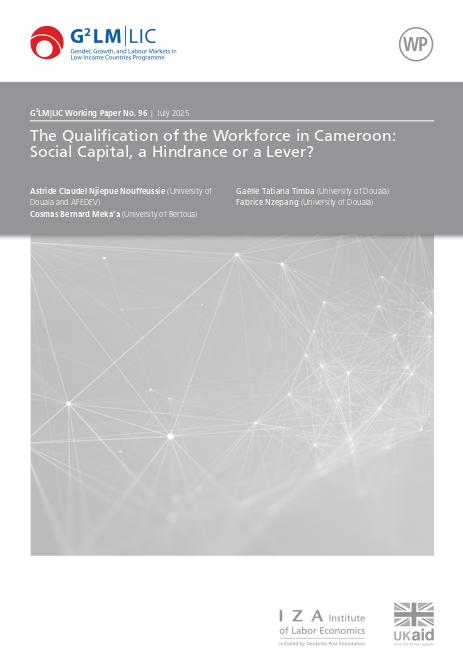Although the analysis of the effects of social capital on the labour market has been the subject of extensive theoretical and empirical literature, very few studies have focused on qualification in general and on worker qualification in particular. In order to fill this gap, the aim of this study is to analyze the effects of social capital on the qualification of workers in the Cameroonian labour market. For a complete and contextual understanding of social capital, Multiple Correspondence Analysis (MCA) is used to construct a composite index of social capital combining the structural, relational, and cognitive dimensions. The data used come from the fourth Cameroonian household survey conducted by the National Institute of Statistics in 2014. The study uses an instrumental variable probit model to take account of the endogeneity bias associated with the dual causality between social capital and worker qualification. The main results suggest that: i) social capital has a negative and statistically significant effect on the qualification of workers on the labour market in Cameroon; ii) this negative social effect is more pronounced for male workers, workers in the informal sector, and young workers than for senior workers, female workers, and workers in the formal sector. Our results argue in favor of encouraging the use of formal channels in order to reduce dependence on informal channels, but also in favor of aligning training and skills provision for individuals with market needs.

The Qualification of the Workforce in Cameroon: Social Capital, a Hindrance or a Lever?
- Astride Claudel NJIEPUE NOUFFEUSSIE
- Cosmas Bernard MEKA’A
- Gaëlle Tatiana Timba
- Fabrice Nzepang